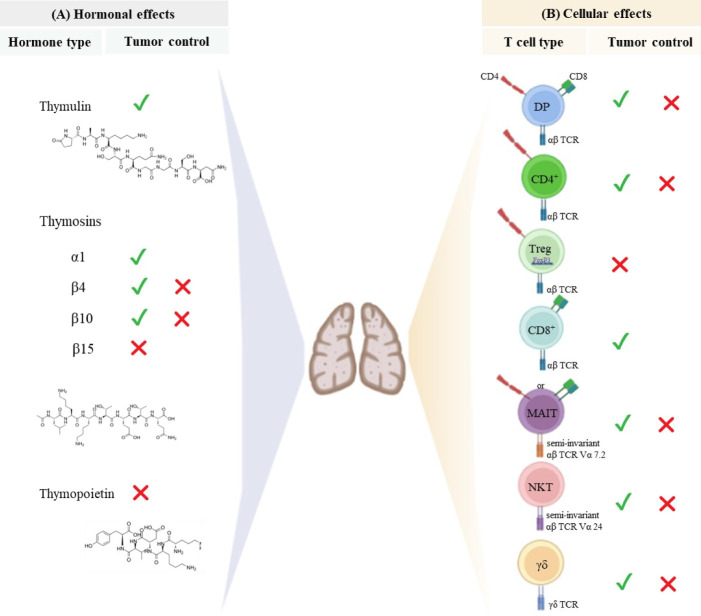Figure 2.
Thymus-derived peptides and immune cells regulate tumor growth. (A) Thymic peptide hormones are synthesized within the thymus and exert important regulatory effects on tumor cells. Thymosin α1 can induce anti-tumor immune responses and directly act on tumor cells to retrain tumor growth. Although β-thymosins (herein exemplified by β4, β10 and β15) can facilitate tumor progression, the β4 and β10 isoforms have also been reported to present suppressive tumor effect is some disease settings. Despite the paucity of available data, thymulin appears to promote anti-tumor effects, while high levels of thymopoietin have been associated with tumor cell proliferation and survival. The chemical structure of synthetic thymosin β4, thymulin and thymopoietin is shown. (B) The thymus provides the physiological microenvironment critical for the development of different types of T cells. It is possible that immature T cells expressing both CD4 and CD8 co-receptors can migrate to the immune periphery exerting either cytotoxic or immunosuppressive effects depending on the disease context. Similarly, conventional CD4+ T cells and unconventional T cells (MAIT, NKT and γδ T cells) can exert dual effect on tumor cells. Cytotoxic CD8 + T cells are the main effector cells to promote anti-tumor immunity, while regulatory T cells expressing both CD4 and the transcription factor Foxp3 have been largely investigated for its immunosuppressive properties and ability to hamper effective anti-tumor immune responses. The signals represent the role of hormones and T cells in controlling (✓) or inducing (✗) tumor progression.

